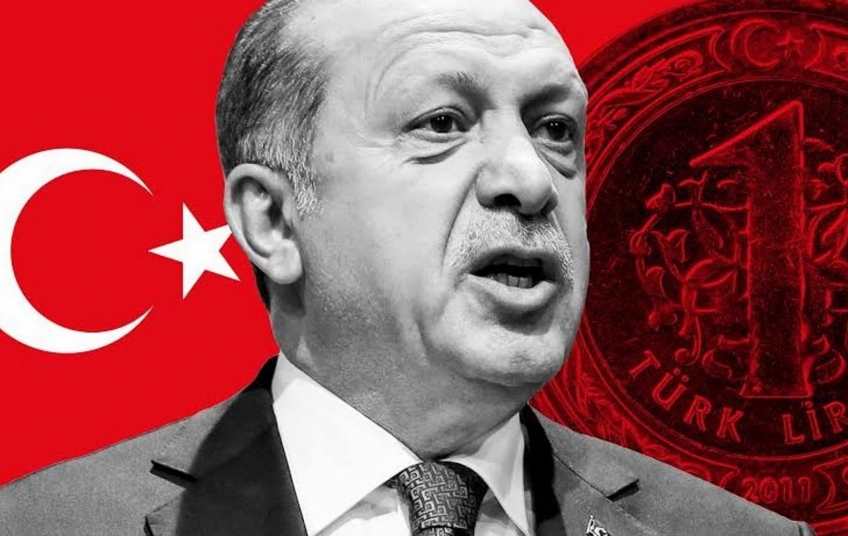Turkish central bank raises rates to stem currency crisis
Bloomberg informs that Turkey’s central bank raised its benchmark interest rate by the most since Recep Tayyip Erdogan came to power 15 years ago, countering the president’s call for lower borrowing costs just two hours before the decision was announced. The Turkish lira began to recover shortly after the rate hike.
According to the Associated Press Turkey’s central bank noted that the local economy is weakening while inflation is rising. The rate hike could pinch growth more, but independent experts say it’s needed to contain inflation of around 18 percent and support the currency.
Addressing a meeting of Turkish tradesmen and artisans in Ankara, Erdogan said the central bank is independent and takes its own decisions. He repeated however, his belief that interest rates should be cut, calling them an “instrument for exploitation.”
He criticized the central bank, saying it had consistently miscalculated inflation targets and again portrayed the currency crisis as a foreign conspiracy.
According to the report, in a bid to shore up the Turkish lira, Erdogan’s government issued a decree banning the use of foreign currency in the sale and renting of property and the leasing of vehicles and all sales and rental contracts agreed in foreign currency will be converted to Turkish lira.
EU prolongs Russia sanctions until March 2019
Radio Free Europe/Radio Liberty informs that the European Union has extended by another six months visa bans and asset freeze against 155 Russian and Ukrainian individuals, as well as 44 companies, for undermining or threatening the independence of Ukraine. "An assessment of the situation did not justify a change in the sanctions regime," The EU council said in a statement issued on September 13.
On the same day, the European Union's General Court has upheld the bloc's sanctions regime against Russian bank and energy companies over Russia's involvement in the crisis in Ukraine.
The EU sanctions restrict the access of the Russian banks and gas companies to some financial transactions and certain sensitive goods and technologies, as well as to capital markets in the EU, and prohibit the provision of services required for certain oil transactions.
The court said that the "stated objective of the contested acts is to increase the costs of Russia's actions to undermine Ukraine's territorial integrity, sovereignty, and independence, and to promote a peaceful settlement of the crisis", and that "this objective is consistent with the objective of maintaining peace and international security."
Prepared by Marina Muradyan





